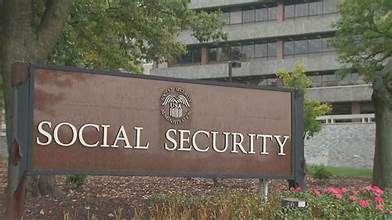‘It’s scary’: American families are homeless, unable to pay mega bills after Social Security benefits blunder. Lawmakers want to put a stop to it — will Congress come to the rescue?

Social Security is meant to be a safety net for the disabled and retired. It delivers about $1.4 trillion in benefits to millions each year.
However, the federal agency that runs it has been aggressively trying to claw back billions of dollars from those it now says it overpaid.
An investigation by KFF Health News and Cox Media Group revealed that the Social Security Administration had demanded repayments from more than 2 million people a year. Beneficiaries were asked to repay amounts which sometimes reached tens of thousands of dollars.
When Woods, who has lupus and congestive heart failure, couldn’t repay that amount, she was told her monthly checks of $2,048 would be withheld until it was enough to cover her debt.
KFF and CMG say their reporting on the matter has triggered a congressional hearing, additional Senate oversight of the agency, an apology from the head of the SSA to Congress about understating overpayments, and an ongoing internal policy review.
In November, two senators on the Senate subcommittee that oversees Social Security wrote a letter urging the SSA “to take additional action to reduce overpayments and prevent undue harm on the most vulnerable Social Security recipients when recovering overpayments.”
In December, the Senate Finance Committee said it’s “going to watchdog Social Security’s overpayment program, and will meet with Social Security every month until it is fixed.” Chairman Ron Wyden wrote, “We were told in the past that Social Security was fixing the problem. That clearly has not been the case.”
Under its new head Martin O’Malley the SSA has proposed using information from payroll data providers to reduce improper payments.
The SSA’s overpayment problem
In the fiscal year 2023 (Oct. 1, 2022 to Sept. 30, 2023), the SSA recovered over $4.9 billion in overpayments, but it ended the year with $23 billion of overpayments still uncollected.
According to KFF Health News, the agency has admitted in the past that many overpayments were the result of errors by the government rather than the people — often elderly, poor or disabled — receiving the extra money.
Those getting Social Security benefits typically spend their checks on critical living expenses and health care. They’re not stashing it away to cover unexpected four- or five-figure repayment bills from the SSA.
For some, the repayment burden is life-altering. As part of its probe into the matter, WSB-TV Channel 2 Action News spoke with Nicole Eberhart at an extended-stay hotel, where the legally-blind mom is now living after losing her $1,700 monthly disability check from the SSA due to overpayments.
“I was using that money to actually pay for the apartment we were living in,” she told consumer investigator Justin Gray, who has been digging into the overpayments issue for three years.
As a result of the months-long investigation in partnership in KFF Health News, SSA Acting Commissioner Dr. Kilolo Kijakazi said in Oct. 2023 that she plans on “putting together a team to review overpayment policies and procedures to further improve how we serve our customers.”
In the meantime, here’s what you can do if you receive a dreaded repayment notice in the post.
Paying back benefits
As of December 2023, there were 67 million Americans receiving Social Security benefits. Of that total, over 8.5 million Americans were claiming disability insurance from the SSA, receiving an average monthly benefit of $1,395, according to federal data.
With numbers like that, it is only natural that mistakes can and do fall through the cracks — but the SSA does have official procedures in place to resolve payment issues.
“Benefits are overpaid when we can’t accurately calculate your benefit amount because our information is wrong or incomplete,” the SSA explains online. “It can happen if you don’t share updates with us about what’s changed in your life, like your ability to work, living situation, marital status or income.”
If you receive a letter from the SSA which says you got more money than you should have, you have at least 30 days (plus five mail days from the date of the notice) to pay back the full amount. If you fail to do so within that time frame, the SSA will start collection of the overpayment — potentially by reducing or halting Social Security monthly benefits, or garnishing wages and federal tax refunds — unless you submit a timely request for a waiver or reconsideration.
How to reduce or appeal your repayment
A shock Social Security repayment notice doesn’t have to end in your financial ruin. There are ways to request help from the SSA.
If you receive a valid overpayment notice but are unable to pay the SSA back within 30 days, you can request to repay your debt in smaller and more manageable monthly payments.
If you don’t agree you’ve been overpaid or the overpayment amount is incorrect, you can submit an appeal online or by mail. Make sure you have all of your medical information and supporting documents (including forms, legal documents, and written statements) ready before requesting a repayment consideration.
You can also ask the SSA to waive your repayment if you can’t afford it and feel the error wasn’t your fault, or if you think the overpayment is unfair for another reason. Again, the SSA may ask to see evidence of your income and expenses before they agree to waive your debt.
Receiving any type of payment demand can be scary — especially if you’re not expecting it — but the worst thing you can do is run from it. It is always worth contacting your collector to see if you can come up with a repayment plan that works for you and exploring other ways to improve your situation.
Source: Money wise



